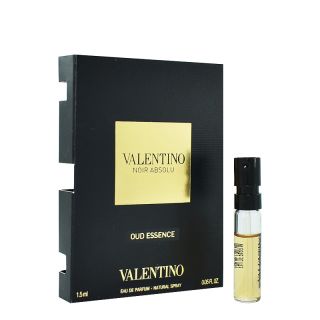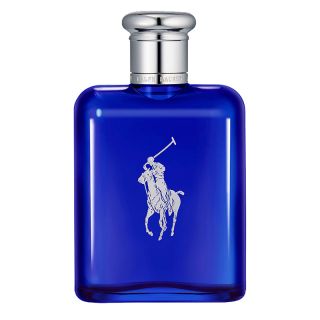
- herbal
- perfume

Perfume200 ML
Perfume10 ML
Sample

Perfume60 ML
Perfume200 ML
Perfume

Perfume60 ML
Perfume200 ML
Perfume

Perfume50 ML
Perfume5 ML
Decant

Perfume60 ML
Perfume5 ML
Decant

Perfume100 ML
Perfume200 ML
Perfume

Perfume5 ML
Decant

Perfume5 ML
Decant

Perfume5 ML
Decant60 ML
Perfume

Perfume50 ML
Perfume0.8 ML
Sample

Perfume5 ML
Decant

Perfume50 ML
Perfume5 ML
Decant

Perfume5 ML
Decant50 ML
Perfume

Perfume5 ML
Decant75 ML
Perfume

Perfume200 ML
Perfume5 ML
Decant

Perfume1.5 ML
Sample60 ML
Perfume

Perfume50 ML
Perfume10 ML
Perfume

Sample100 ML
Perfume

Perfume50 ML
Perfume5 ML
Decant

Perfume110 ML
Perfume5 ML
Decant

Perfume50 ML
Perfume200 ML
Perfume

Perfume125 ML
Perfume118 ML
Perfume

Perfume50 ML
Perfume200 ML
Perfume

Perfume250 ML
Perfume30 ML
Perfume

Perfume50 ML
Perfume5 ML
Decant

Perfume30 ML
Perfume1.8 ML
Sample

Perfume50 ML
Perfume1 ML
Sample

Perfume5 ML
Decant2 ML
Sample

Perfume200 ML
Perfume60 ML
Perfume

Perfume5 ML
Decant100 ML
Perfume

Perfume200 ML
Perfume125 ML
Perfume

Perfume50 ML
Perfume30 ML
Perfume

Perfume200 ML
Perfume50 ML
Perfume

Perfume125 ML
Perfume5 ML
Decant

Perfume50 ML
Perfume2.5 ML
Sample

Perfume5 ML
Decant

Perfume50 ML
Perfume5 ML
Decant

Perfume125 ML
Perfume50 ML
Perfume

Perfume5 ML
Decant45 ML
Perfume

Perfume75 ML
Perfume50 ML
Perfume

Perfume5 ML
Decant100ml vintage
Perfume

Perfume50 ML
Perfume30 ML
Miniature
Herbal perfumes are a fragrance category that draws inspiration from the aromatic leaves, flowers, and stems of herbs found in nature. These perfumes often evoke freshness, earthiness, and a natural green vibrancy that connects wearers to the outdoors and traditional herbal medicine. Originating from ancient times when herbs were used for healing, ritual, and scent, herbal perfumes have evolved into sophisticated blends that highlight botanicals like rosemary, sage, thyme, basil, lavender, and mint.
The origins of herbal scents in perfumery trace back to classical and folk traditions, where herbs were distilled or infused for therapeutic and aromatic purposes. In contemporary perfumery, herbal fragrances offer a versatile and uplifting experience ranging from light and crisp to deep and resinous. They appeal to consumers seeking clean, natural, and revitalizing scents, often blended with floral, woody, or citrus notes to create balanced compositions that feel both modern and timeless.
Quality Indicators and Prices of Herbal Perfume Products
The quality of herbal perfumes is largely determined by the authenticity and complexity of the herbal accords. High-quality herbal perfumes capture the true character of fresh herbs without overwhelming sharpness or synthetic artificiality. They present well-rounded, nuanced green notes that evolve beautifully on the skin, complemented by other natural ingredients such as woods, florals, or spices to add depth and longevity.
Price is typically linked to the purity of essential oils and the intricacy of the blend. Premium herbal perfumes often contain higher concentrations of natural herbal extracts or essential oils, leading to richer, more vibrant scent profiles with lasting power. In contrast, more affordable herbal perfumes may rely on simpler synthetic herbal accords, resulting in lighter scents with reduced complexity and shorter wear times. Presentation, brand heritage, and perfume concentration (EDP, parfum) also influence pricing.
Price of Herbal Perfume Products
Herbal perfumes generally cover a wide price range reflecting brand positioning and formulation quality. In the UAE and GCC markets, affordable herbal perfumes are commonly priced between AED 150 to AED 400. These perfumes often appeal to consumers looking for fresh, green, and natural scents suitable for everyday wear in warm climates.
At the luxury end, niche and high-end herbal perfumes command prices from AED 500 up to AED 1,200 or more, featuring sophisticated herbal blends with rare essential oils, higher perfume oil concentrations, and artisanal craftsmanship. Brands with a strong focus on natural and botanical perfumery often lead this segment, offering exquisite herbal fragrances that appeal to connoisseurs and eco-conscious consumers alike.
About the Price of Herbal Perfume Products Around the World
Internationally, herbal perfumes are positioned mostly within the designer and niche fragrance categories, with prices reflecting the artistry and ingredient sourcing. In Europe, particularly in France and Italy, herbal perfumes typically retail between €90 and €250, depending on the brand and formulation. Niche brands focused on natural and botanical scents often command premium prices due to their unique blends and limited production.
In North America, prices are comparable, ranging from $100 to $300, with specialty retailers and boutiques offering a broad selection of herbal fragrances for various budgets. The Middle East market, including the UAE, Saudi Arabia, and Kuwait, shows growing demand for herbal perfumes as consumers seek fresh, natural alternatives to heavy oriental scents. Asia also sees rising interest, with countries like Japan and South Korea appreciating the subtlety and freshness of herbal notes in modern perfumery.
About the Cheapness and Expensiveness of Herbal Perfume
The cost difference between cheap and expensive herbal perfumes stems from the quality of ingredients, concentration, and brand craftsmanship. Affordable herbal perfumes often use synthetic herbal notes or diluted formulations that mimic the scent of herbs but may lack authenticity and complexity. These products are suitable for casual users who want fresh, light scents without a significant investment.
Expensive herbal perfumes prioritize natural essential oils, rare botanicals, and intricate blending techniques that bring out the true character of herbs with depth and nuance. Higher concentrations of perfume oils result in longer-lasting scents with greater projection and complexity. Luxury packaging and exclusive branding further contribute to higher prices. At Riah, we carefully select herbal perfumes that balance quality and value, catering to a wide range of preferences and budgets.
Quality of Herbal Perfume Products
Quality herbal perfumes provide a vibrant, fresh, and authentic green scent experience that is both uplifting and soothing. The best herbal perfumes reveal multiple facets of herbs from crisp, bright top notes like mint or basil to deeper, woodsy or resinous undertones of sage or rosemary. These fragrances evolve gracefully on the skin, offering an engaging and natural scent journey.
Longevity and sillage are important markers of quality in herbal perfumes. Premium products maintain their freshness and complexity for several hours without fading into flatness or becoming overly synthetic. In hot climates like the UAE, high-quality herbal perfumes offer an ideal balance of lightness and durability. Riah proudly curates a diverse selection of herbal perfumes sourced from renowned international and niche brands, ensuring a refreshing, natural, and luxurious experience for our customers.







